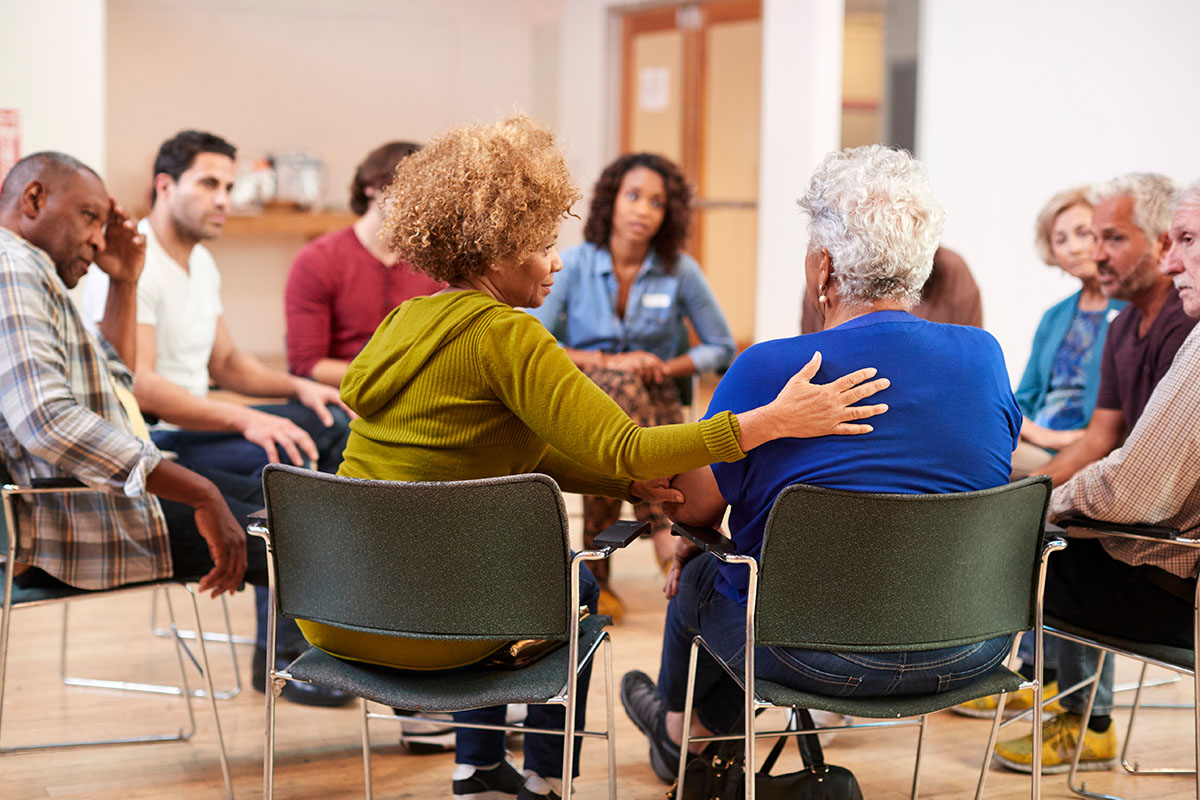Finding Connection: Why Community Matters in Parkinson’s

For people living with Parkinson’s, community is essential for overall health and well-being.
It’s easy to withdraw when communication feels harder or when daily tasks require more effort. But building a supportive community through social connections, exercise groups, or support networks is vital in maintaining quality of life.
Let’s explore the power of community for living your absolute best life with Parkinson’s.
Overcoming Isolation and Staying Connected
One of the first challenges after a Parkinson’s diagnosis is staying socially engaged. Parkinson’s symptoms, like reduced facial expression or a softer voice, can make interactions more difficult.
Fatigue, mobility issues, and embarrassment about symptoms sometimes push people to avoid gatherings. Unfortunately, this isolation can fuel a cycle of loneliness and depression, which is why staying social is so important.
Remaining socially active helps preserve identity and provides a sense of belonging. Whether it’s coffee with friends, attending religious services, or joining hobby clubs, continuing to participate in life’s social fabric is vital.
Keeping Your Voice and Mind Strong

Communication is at the heart of human connection, and for people with Parkinson’s disease, maintaining the ability to express thoughts and feelings clearly is crucial for staying socially engaged.
Parkinson’s often affects both speech and cognition, making conversations more difficult. This can lead to frustration and, over time, withdrawal from social interactions. However, with the right strategies and therapies, people with PD can preserve and even strengthen their communication skills.
Speech Therapy
Communication challenges are common in Parkinson’s. Many people experience hypophonia (a softer voice), monotone speech, or difficulty articulating words. These changes can make conversations frustrating and may lead to withdrawal from social situations. Speech therapy and vocal exercises are powerful tools in counteracting this.
PCLA has many options for resources listed on our website, including:
A FREE therapy regimen at Cal State LA tailored to people with Parkinson’s disease to improve their voicing, and in turn, their swallowing.
Find local therapists and speech language pathologists trained in the LSVT LOUD program — specifically for people with PD —on their site.
Find local therapists and speech language pathologists via their online search tool.
Contact the CSUN Speech & Hearing Clinic at 818-677-2856 for the latest Information.
SoCal Swallow provides specialized speech and swallowing evaluations and therapy for people with PD.
Cognition
Cognitive changes, like slowed thinking or memory difficulties, can also affect communication. Staying mentally engaged through reading, puzzles, music, or learning new skills, helps keep the mind active.
Supportive communication strategies, such as giving extra time to respond or reducing background noise, can make conversations easier. By working on both the physical and cognitive aspects of communication, people with PD can stay connected to their communities.
Moving Together: The Social Benefits of Exercise

Exercise is one of the most powerful non-medical treatments for Parkinson’s disease. Research shows it can improve both motor and non-motor symptoms in PD. Beyond the physical benefits, exercise provides a strong sense of community.
Group classes, such as dance, ping pong, boxing programs designed for Parkinson’s, or yoga, combine fitness with social connection. These classes offer encouragement, accountability, and the joy of working toward shared goals.
Exercising with others also fosters motivation. For many, it transforms a medical recommendation into something fun, social, and sustainable. The friendships built in these classes often extend beyond the studio, creating another layer of support.
Check out these PD-specific exercise resources in the Los Angeles area:
Boxing
Dance
Ping Pong
Yoga
Finding Strength in Shared Experiences

Support groups are one of the most important community resources for people with Parkinson’s disease and their families. Peers in these groups deeply understand the lived experience of PD. Conversations are honest, empathetic, and validating.
Support groups provide a safe space to share challenges and solutions. For someone newly diagnosed, hearing how others navigate medication side effects, sleep issues, or daily routines can be incredibly reassuring. For long-time members, mentoring newer participants offers purpose and perspective.
PCLA offers weekly online and in-person support groups that are entirely free to join. Check out the events calendar to sign up or get more details.
Together We Are Stronger

Parkinson’s disease presents real challenges, but community offers a powerful antidote.
For anyone living with Parkinson’s, community is not just support; it is a lifeline. Through connection, encouragement, and shared strength, people can live fuller, richer lives despite the challenges of living with Parkinson’s disease.
Donate Today,
Change Lives Forever
PCLA is powered by generous contributions from people like you.
Please consider donating today so we can continue to provide critical support to those impacted by Parkinson’s.

